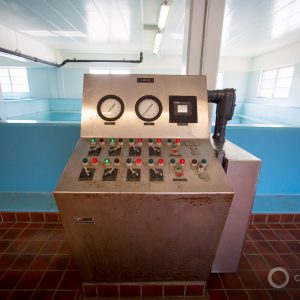The Stream, June 9: Cases of Legionnaires’ Disease Quadruple in U.S. in 15 Years
The Global Rundown
Pneumonia-like disease spread by airborne water droplets is rising in the United States. Bottled water will soon overtake soft drinks. California regulators drop a record fine against a water district for illegal diversion. A monkey takes out Kenya’s power grid. Drought followed by rain led to record nitrate levels in streams in the U.S. Corn Belt. Karachi, the largest city in Pakistan, is enduring protests over water shortages.
“People are unnecessarily and avoidably getting sick and dying from preventable infections.” — Tom Frieden, director of the Centers for Disease Control and Prevention, about the rise in Legionnaires’ disease cases in the United States. Washington Post
By The Numbers
2017: Year by which a leading beverage industry research firm expects bottled water sales in the United States to overtake soft drinks. USA Today
$US 1.5 million: Size of fine against a California water district that the state water board dismissed. The district was accused last summer of taking more water from rivers than it was entitled to. Los Angeles Times
5 hours: Length of an electricity blackout that affected most of Kenya. The outage was the result of cascading failures that began when a vervet monkey fell onto a transformer at Gitaru power station, the country’s largest hydroelectric plant. All Africa
Science, Studies, And Reports
Historic drought conditions in the U.S. Midwest in 2012 were followed by a wet year. That hydrologic seesaw in the nation’s most heavily fertilized region caused nitrate levels in streams to spike to record highs in 2013. U.S. Geological Survey
Cases of Legionnaires’ disease quadrupled in the last 15 years in the United States, according to a Centers for Disease Control and Prevention report. The disease, which can be deadly and is spread by breathing contaminated airborne water droplets, costs $US 434 million per year to treat. Washington Post
On The Radar
Pakistan’s largest city is in the midst of a water crisis, and there are political casualties. The head of the Karachi Water Board resigned after a weekend of protests over water shortages in the city of roughly 20 million people. The protests were led by the MQM, the city’s dominant political party. Pakistan Observer
Brett writes about agriculture, energy, infrastructure, and the politics and economics of water in the United States. He also writes the Federal Water Tap, Circle of Blue’s weekly digest of U.S. government water news. He is the winner of two Society of Environmental Journalists reporting awards, one of the top honors in American environmental journalism: first place for explanatory reporting for a series on septic system pollution in the United States(2016) and third place for beat reporting in a small market (2014). He received the Sierra Club’s Distinguished Service Award in 2018. Brett lives in Seattle, where he hikes the mountains and bakes pies. Contact Brett Walton






